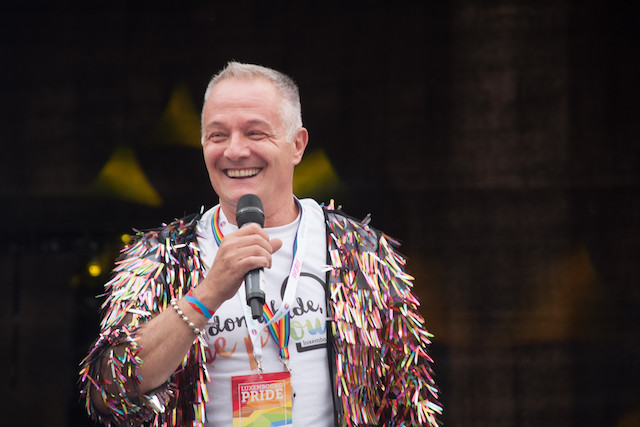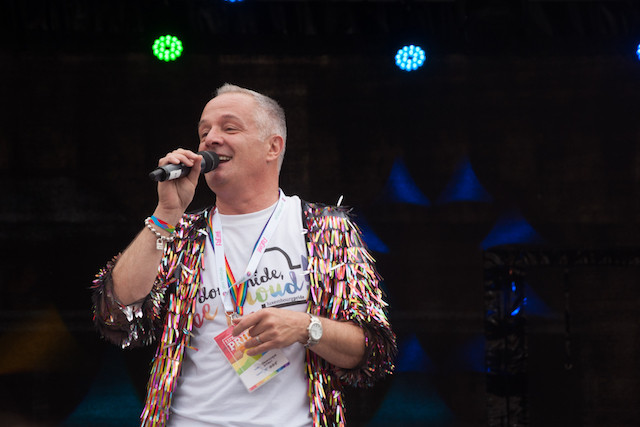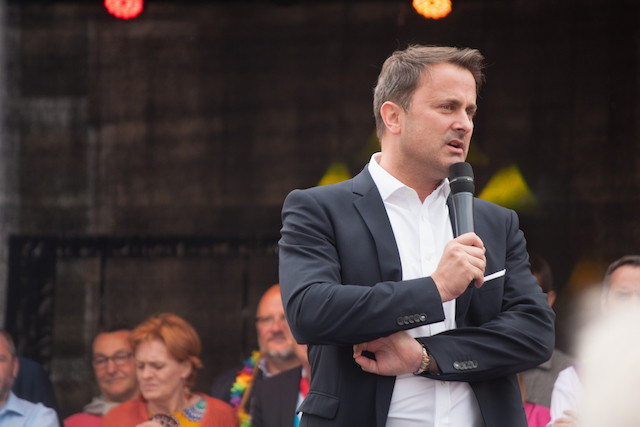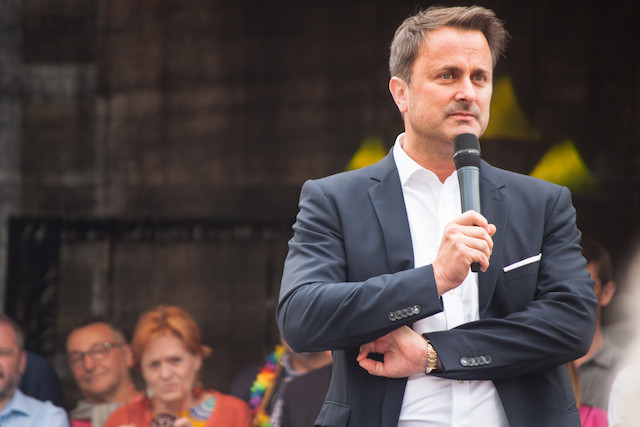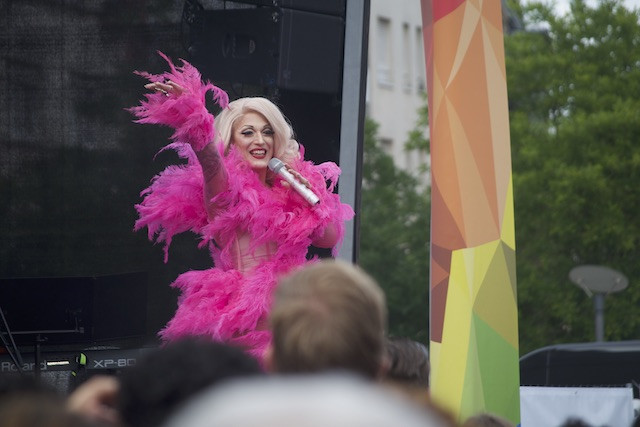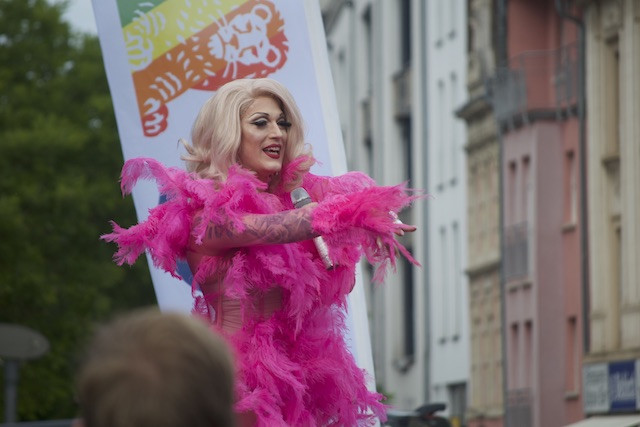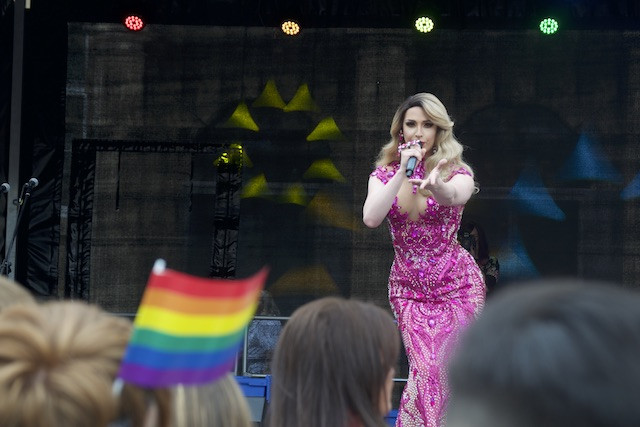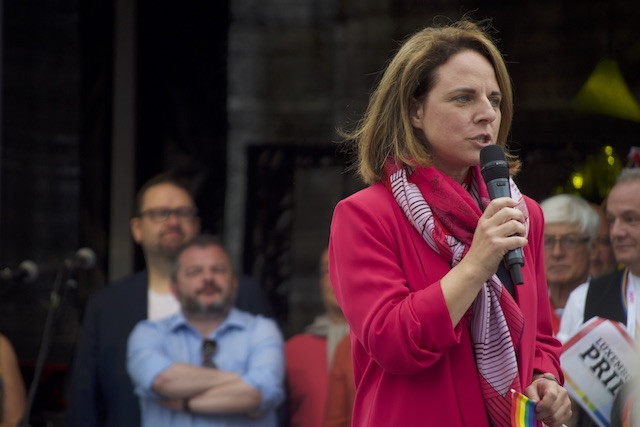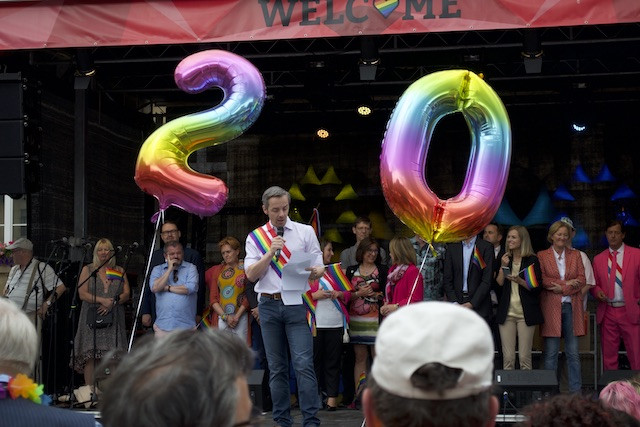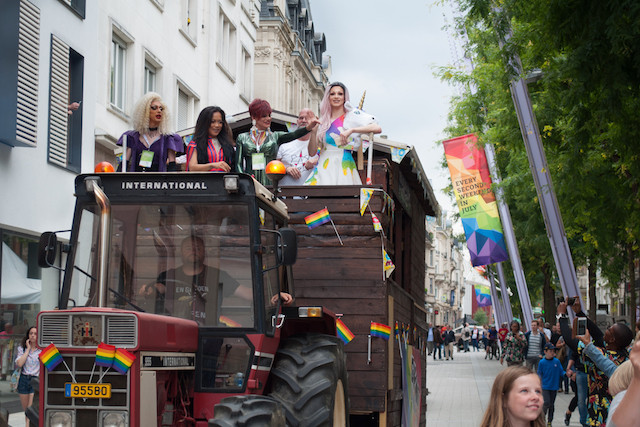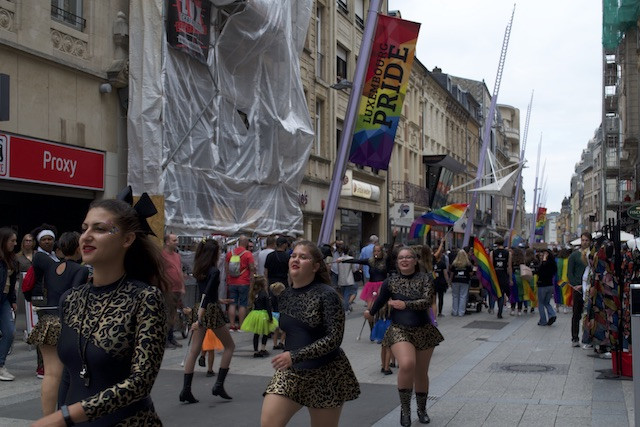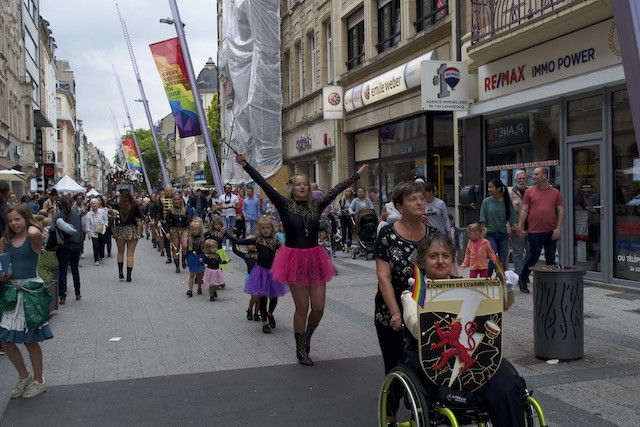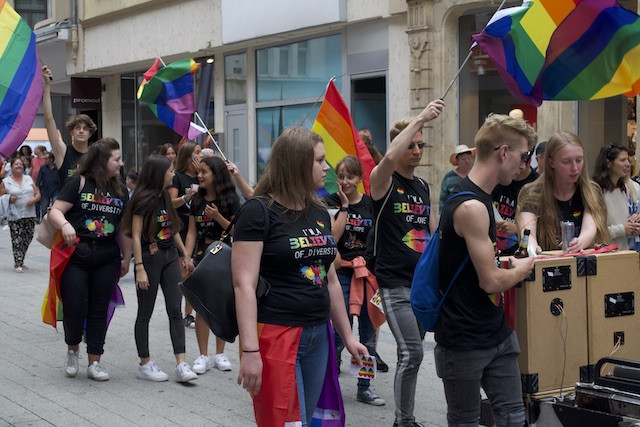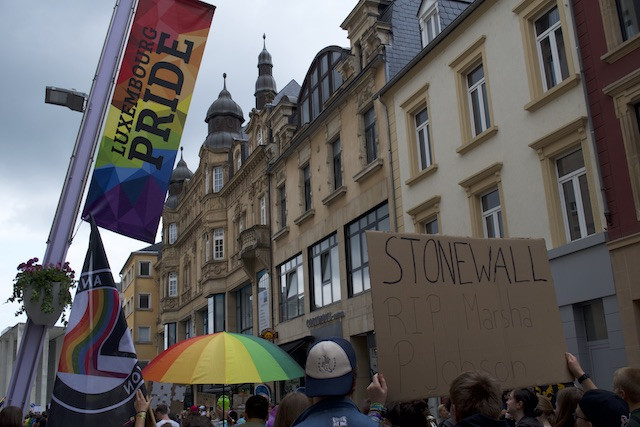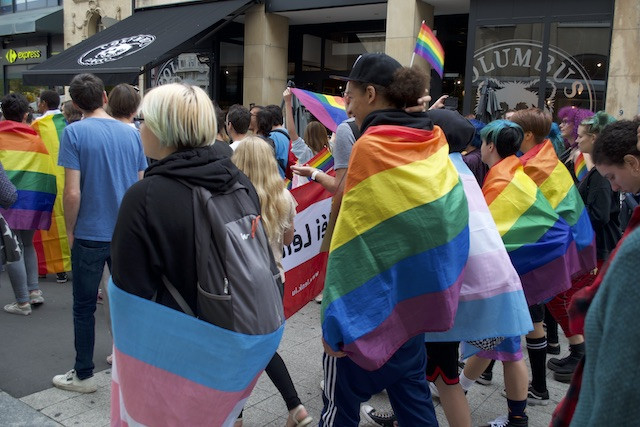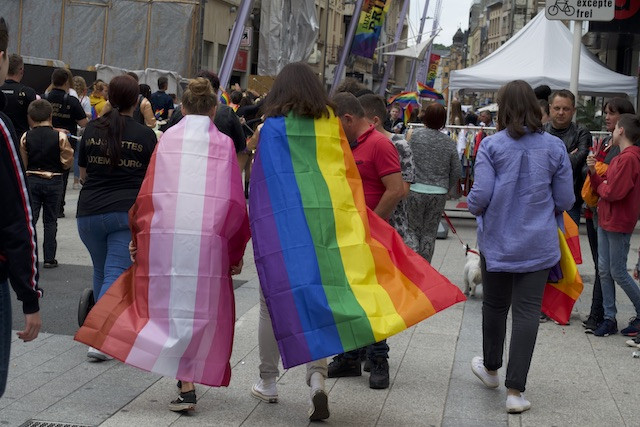Besides the upbeat and joyful celebration, gay pride festivals are also a time of remembrance and commemoration. The crowd observed a minute of silence and listened to speeches scheduled to commemorate the victims of homophobia and transphobia worldwide. This year, Luxembourg pride was especially remembering three important numbers: 50, 20, and 10.
50 years since Stonewall Riots
Pride parades as we know them are the aftermath of the Stonewall Riots. The Stonewall Inn was a gay bar located in Greenwhich Village, in New York City. In the 1960s, many laws discriminated against sexual minorities. Thus, gay bars and clubs were considered the closest thing to a safe haven for the gays, lesbians and trans people.
On 28 June 1969, police raided the Stonewall Inn. The New York Police Department arrested employees for selling alcohol without permit, roughed up patrons and arrested drag queens and other transvestites for not wearing the minimum 3 items of gender-appropriate clothing required by the law. That night, people rebelled violently against the police, throwing coins, bricks and bottles at the policemen.
A year later, a parade was organised on the anniversary of the event and gathered thousands of supporters of the LGBT community. This parade happened every year since and expanded over the years to other cities in the USA and across borders to become the worldwide event we know today.
20 years of pride in Luxembourg
This year marked the 20th anniversary of the first gay pride festival organised in the grand duchy. Thalia Garcia, a Luxembourg drag queen, has been participating in Luxembourg Pride (formally known as Gaymat) for the past 17 years. She commented on the growth of the festival over the years:
“It was much smaller. There were less acts on stage. The mentality of people wasn’t this opened, but now we really have a mix of heterosexuals, bisexuals, gays, lesbians and drag queens. It is good that we finally get to see people’s mentalities move forward”.
10 years of pride in Esch
Luxembourg Pride relocated a decade ago to Esch-sur-Alzette, where the event has kept on growing in size ever since. Luxembourg Pride “used to happen in Luxembourg City and was never really supported, neither by the people owning bars and shops nor by the city itself. So they decided to move it to Esch,” according to Dominique Vitali, the official stage host of Luxembourg Pride and executive board member at Rosa Lëtzebuerg, an advocacy group. Vitali told Delano during the celebrations:
“This year it is the first time that we have a bank and an insurance as sponsors. It is the first year that a diplomatic core took part in the pride which is a big first time for Luxembourg. We want that to continue growing.”
A initiative successfully delivered today. We organised the first multi-Embassy participation in Luxembourg Pride! Allies in support of LGBT+ rights. #diplomatsforequalitypic.twitter.com/IkPTMNV3NL
— John Marshall (@HMAJohnMarshall) July 13, 2019
Luxembourgers and foreigners alike joined the official parade on Saturday 13 July, which featured majorettes, politicians, drag queens and other guests. Vitali described his impression of this year’s parade:
“A great moment was when I was at the front of the parade and when I looked back, I could not see the end of the march. I’m proud to say that this year was the biggest event ever and I’ve never seen the square so full.”
For the future
Luxembourg is known to be very tolerant in terms of LGBTI rights and acceptance of gays, lesbians and transsexuals within society. This year’s pride was a good example. Yet, it does not mean that there is nothing left to be improved on. “What charities do at the moment,” stated Vitali, “is mainly helping refugees who are LGBTIQ people and that do not have this kind of situation in their country. On that level I think we still need to get the message out that it’s not because everything is great here that it is everywhere else”.
This subject was also brought up by Xavier Bettel, openly gay prime minister (DP), in his speech. He reminded the crowd that if such events may seem normal to some, other countries still execute members of the LGBTI community.
Happy 20#Pride2019. XB pic.twitter.com/LAbdpOevhR
— Xavier Bettel (@Xavier_Bettel) July 13, 2019
Speaking of the importance of pride festivals in countries like Luxembourg, Vitali added:
“It should show how straight, gay, lesbian, and trans people can live together without hurting each other. We are all different and we celebrate our differences.”
Pride celebrations continue this week, with the Philharmonie illuminated in LGBT+ rainbow colours from Tuesday 16 July to Sunday 21 July.
